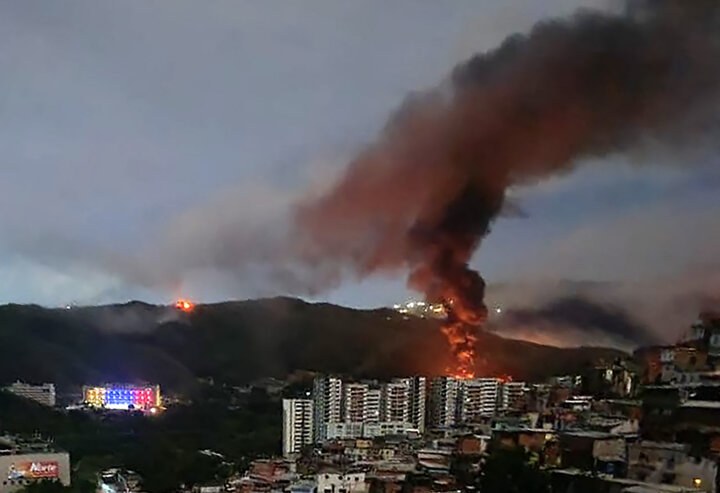-
 2026-01-04 21:07
2026-01-04 21:07
By staff writer
Worldwide anger at state-run abduction
The U.S. government’s unlawful abduction of Venezuela’s elected president has ignited protests and fierce condemnations across continents
TEHRAN – The United States has crossed a dangerous line with its military assault on Venezuela and the kidnapping of President Nicolas Maduro and his wife, Cilia Flores. What Washington presents as justice is, in reality, a blatant violation of international law and Venezuela's sovereignty. By abducting a sitting head of state and declaring that the U.S. will "run the country," President Donald Trump has revived the darkest traditions of imperialism in Latin America.
-

By Sahar Dadjoo
“Game Over Israel”: Red card pressure to hunt down Gaza genocide perpetrators
Ashish Prashar shares the story behind his global campaign in an exclusive interview with Tehran Times
TEHRAN- Ashish Prashar is a political strategist, believes that if Israel were removed from football, it would send an “unmistakable global message” that genocide which has been happening in Gaza for more than two years is unacceptable.
-

By Shahrokh Saei
Iran is not Venezuela: Play with fire, get burned
TEHRAN – After the U.S. military strikes inside Venezuela early Saturday and the abduction of President Nicolás Maduro, Donald Trump appears convinced he can replay the same scenario in Iran.
-

By staff writer
Machado as pawn: Venezuela on Washington’s imperial chessboard
TEHRAN – María Corina Machado’s role in Venezuela’s crisis shows how powerful nations use local leaders for their own goals. For years she was seen as the face of the opposition, someone who could stand against Nicolás Maduro.
-
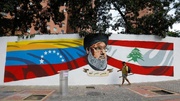
By Sondoss Al Asaad
Kidnapping sovereignty: When law of the jungle replaces global order
BEIRUT—The modern international system is built—at least in principle—on a foundational norm: the sovereignty of states.
-

Venezuela thanks Iran for solidarity as Caracas vows to resist US aggression
TEHRAN – Venezuelan Foreign Minister Yvan Gil Pinto has expressed his gratitude to Iran for voicing solidarity with his country.
Politics
-
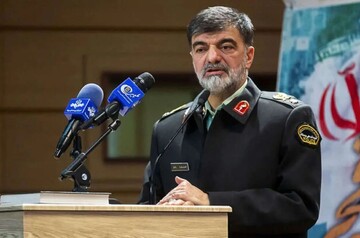
Iran begins ‘targeted arrest’ of rioters
TEHRAN – Iran’s Police Chief Brigadier General Ahmad-Reza Radan announced Sunday that law enforcement forces have begun arresting individuals whose incitement of violence—carried out under the direction of foreign spy agencies—has become clear.
-
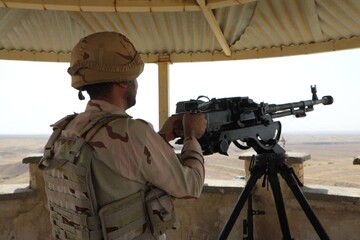
Border guards foil attempted terrorist infiltration in SE Iran
ZAHEDAN – Iranian border security forces successfully intercepted and repelled an attempted terrorist infiltration along the border in Saravan County, Sistan and Baluchestan Province—a development believed to be linked to ongoing attempts by Israel and the West to exploit peaceful economic protests in Iran.
-
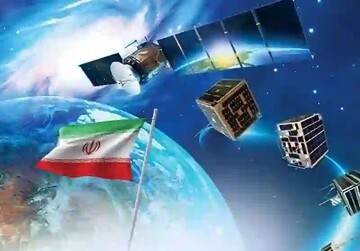
Iran moves to next stage in latest satellite missions following initial checks
TEHRAN – Iran has announced the successful orbital deployment and initial testing of three new satellites. According to a Sunday statement from the Iran Space Agency, the Zafar, Paya, and Kowsar satellites are now in a multi-week orbital testing phase, having completed their first series of in-orbit checks with an overall favorable technical status.
Sports
-

Iranian women athletes emerge as a driving force
TEHRAN - It is impossible to emphasize social health while ignoring or downplaying the role and status of women. In Iran, women, as the cornerstone of the family, play a fundamental and essential role in social vitality and family well-being.
-

Four Iranians nominated for world futsal awards
TEHRAN – Four Iranian futsal figures have been nominated for the 26th edition of the annual World Futsal Awards, released by Futsalplanet.com.
-

Ndong extends deal with Esteghlal: official
TEHRAN – Gabonese midfielder Didier Ibrahim Ndong has signed a new two-year contract with Esteghlal, the club’s CEO Ali Tajernia confirmed on Tuesday.
Culture
-
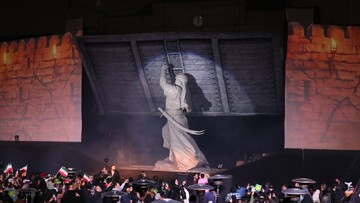
“Conqueror of Khaybar” monument unveiled at Tehran’s Imam Khomeini Square
TEHRAN – Coinciding with the blessed birth anniversary of Imam Ali (AS) and the anniversary of the martyrdom of General Qassem Soleimani, a large monument titled “Conqueror of Khaybar” was unveiled at Tehran’s Imam Khomeini Square on Saturday.
-

Fajr festival highlights Iranian national identity in official poster
TEHRAN- The poster for the 44th Fajr National Film Festival, inspired by an iconic image of veteran actor Ali Nassirian from the film “The Stone Lion,” directed by Masoud Jafari Jozani, was unveiled on Saturday.
-

24th Dhaka International Film Festival to host films by 13 Iranian directors
TEHRAN – The 24th Dhaka International Film Festival (DIFF) will host works by 13 Iranian filmmakers and two other directors will serve on the jury panels of various sections.
Economy
-

Transport fleet moves 454m tons of cargo in 9 months
TEHRAN – Iran’s public road transport fleet moved 454.1 million tons of cargo nationwide from the start of the current Iranian year (late March 2025) through the end of the first nine months, marking a modest increase in freight activity, officials said.
-
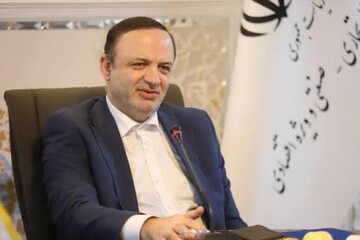
Free zones digital economy framework finalized
TEHRAN – Iran has finalized a digital economy framework for its free trade and special economic zones, aimed at positioning them as drivers of technology-led growth and higher productivity, the secretary of the High Council of Free and Special Economic Zones said.
-
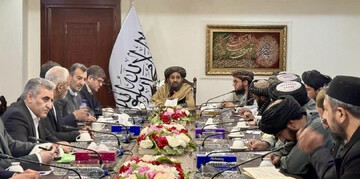
Iran, Afghanistan agree to boost rail freight capacity to 100,000 tons a month
TEHRAN – Iran and Afghanistan have agreed to deepen strategic cooperation in rail transport, with plans to raise monthly rail freight capacity between the two countries to 100,000 tons, Iranian officials said.
Society
-
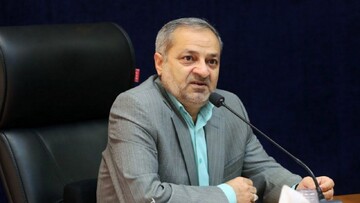
Social harm prevention programs to be expanded
TEHRAN – Education Minister Alireza Kazemi has announced that social harm prevention programs will be implemented in 100 areas nationwide this year, up from 32 areas the previous year.
-

Over 33,000 saplings to be planted in Tehran national park
TEHRAN – With the public participation, more than 33,000 saplings will be planted in Sorkhe Hesar National Park, east of Tehran.
-
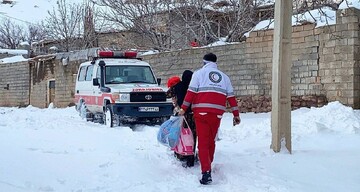
Over 2,000 individuals benefited from IRCS rescue services
TEHRAN – Over the past three days, the Iranian Red Crescent Society (IRCS) provided rescue services to 2,398 people affected by the snowstorms across 20 provinces of the country, according to an official with the IRCS.
Tourism
-

Shushtar residents call for UNESCO listing of historical urban fabric
SHUSHTAR (Khuzestan province) - Residents of the historic city of Shushtar in Iran’s southwestern Khuzestan province have launched a public campaign calling for the inscription of the city’s historical urban fabric on UNESCO’s World Heritage List, citing its cultural, architectural and living heritage value.
-
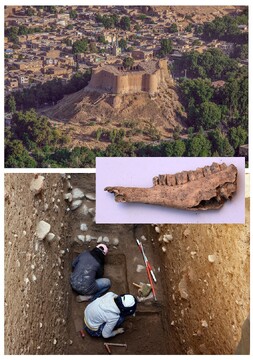
Prehistoric discoveries at Falak-ol-Aflak castle strengthen UNESCO bid
KHORRAMABAD – A major archaeological campaign at the historic mound of Falak-ol-Aflak castle has uncovered important evidence that rewrites the site's history, significantly strengthening Iran's proposal for its expansion on the UNESCO World Heritage list.
-

Ardakan MP: Karbafi, a deep-rooted link between livelihood, culture, life of people
TEHRAN—Karbafi, a traditional Iranian weaving art, is not just an art or industry. It is a deep-rooted link between the livelihood, culture and life of the people of Ardakan, Yazd province.
International
-

Worldwide anger at state-run abduction
TEHRAN – The United States has crossed a dangerous line with its military assault on Venezuela and the kidnapping of President Nicolas Maduro and his wife, Cilia Flores. What Washington presents as justice is, in reality, a blatant violation of international law and Venezuela's sovereignty. By abducting a sitting head of state and declaring that the U.S. will "run the country," President Donald Trump has revived the darkest traditions of imperialism in Latin America.
-

Machado as pawn: Venezuela on Washington’s imperial chessboard
TEHRAN – María Corina Machado’s role in Venezuela’s crisis shows how powerful nations use local leaders for their own goals. For years she was seen as the face of the opposition, someone who could stand against Nicolás Maduro.
-

Kidnapping sovereignty: When law of the jungle replaces global order
BEIRUT—The modern international system is built—at least in principle—on a foundational norm: the sovereignty of states.
Most Viewed
-
Everything you need to know about recent protests in Iran
-
The law of the jungle: U.S. aggression tramples on Venezuelan sovereignty
-
Iran is not Venezuela: Play with fire, get burned
-
We will not back down against the enemy: Leader
-
Global condemnation mounts over Venezuela attacks
-
Iran denounces US attack on Venezuela, calls it a violation of UN Charter
-
Trump claims Maduro is 'captured’ and flown out of Venezuela
-
Washington’s ‘vile’ violation of Bolívar’s homeland
-
When miscalculation meets a civilisation-state
-
Venezuela and the Return of Colonial Seizure Politics
-
Archaeological evidence indicates 10th-century Persian settlement in Madagascar
-
Iranian author calls for Safavid-era oil mill to be turned into Bahram Beyzaie museum
-
Mossad’s objectives in fueling economic protests
-
“Game Over Israel”: Red card pressure to hunt down Gaza genocide perpetrators
-
Iran’s non-oil exports reach $41.2b in 9 months











